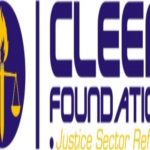Governments at all levels across the country must continue to promote and prioritize disease prevention through adequate and equitable access to water, sanitation and hygiene services in order to have a healthy society.
Also, to curtail the spread of COVID-19 as new variants continue to emerge, there must be a focus on hygiene behaviour change interventions, complemented by a drive to boost uptake of vaccines.
These were part of the conclusion drawn at the end of one day advocacy and sensitization meeting with Stakeholders (community and religious leaders) on COVID-19 prevention and other WASH infectious diseases held on Thursday at Hazibal Suites organized by an NGO, Women Development Association for Self Sustainance (WODASS) with funding from WaterAid Nigeria.
It was also resolved that Bauchi State government must take urgent action in implementing the key recommendations proposed to strengthen its water, sanitation and hygiene service delivery systems, in collaboration with relevant sectors and stakeholders.
Since WASH is critical in maintaining the dignity of human life and keeping communities healthy and productive, the State must continue to promote disease prevention through the promotion of good practices, while also putting measures, especially infrastructure, in place to ensure able to practice and sustain good behaviours.
There must also be improving response to COVID-19 and other Infectious Diseases in Bauchi State through Hygiene Behaviour Change
It was revealed that in 2010, the United Nations General Assembly explicitly recognized the human right to water and sanitation; it was a global acknowledgment that access to clean water, sanitation, and hygiene (WASH) services are essential to the realisation of all human rights.
According to global and national health authorities such as the World Health Organization (WHO) and the Nigeria Centre for Disease Control (NCDC), safely managed WASH services, particularly hygiene, form an essential part of preventing and protecting people during infectious disease outbreaks and good hygiene practices are recommended as the first line of protection from infectious diseases.
The outbreak of the coronavirus disease (COVID 19) in 2020 remains a public health emergency and promoting good personal and domestic hygiene is the most cost-effective health action to contain the spread of the disease in homes, communities, healthcare Facilities, schools, and other public spaces.
A lag in the promotion of preventive hygiene behaviours such as frequent handwashing, coughing/sneezing into the elbow, use of facemasks, and physical distancing, heightens the r of increased transmission rates of infections an further puts a strain on the nation’s health sect and resources.
Beyond COVID-19, other poor hygiene behaviours related to water storage, excreta disposal, handling, preparing, and storage of food or drink make communities susceptible to outbreak of other diseases such as cholera, La fever and diarrhoea.
However, despite evidence of the effectiveness of good hygiene practices in preventing the spread of COVID-19 and other infectious diseases, most Nigerians are still unable to practice good hygiene behaviours because of the lack of access to water, sanitation and hygiene services.
ALSO READ FROM NIGERIAN TRIBUNE
Poor capacity financing, institutional arrangements, coordination, accountability mechanisms, and implementation of national and state policies and plans prevent effective and sustainable provision of these services and continue to be major blockage improvements that could drastically change t lives of millions of people in Nigeria.
In order to ensure a more effective, holistic focused WASH response to COVID-19 and other infectious diseases, while strengthening systems that ensure access to quality water, sanitation, and hygiene services in all communities across Bauchi State, the State Government and Local Governments should widen the scope of the hygiene behavior change campaign to include hygiene education t Focuses on key behaviors such as respiratory hygiene, handwashing, physical distancing, safe excreta disposal, water storage and COVID-19 vaccine uptake. D
They should also ensure routine sustainable water, sanitation and hygiene interventions are provided in communities and LGAs with poor access, especially those with endemic trends. Also provide facilities in schools, healthcare centers and public places to support inclusive access to WASH for all.
The State and Local Government should Scale-up WaterAid’s Clean Family Campaign to all local government areas across the three senatorial zones of the state and ensure personal and environmental hygiene are at the C of immediate response plans.
In support of government’s declaration to end open defecation by 2025, WaterAid recognizes that good hygiene is a key component to achieving this milestone; with success being underpinned by the strong foundation of the family unit changing behaviour and adopting good hygiene practices.
WaterAid’s Clean Family Camp therefore seeks to influence the adoption of good hygiene behaviours at critical times by family units-which will lead to improved wellbeing and a clean community, which in turn to a clean local government, clean state and ultimately a clean Nigeria.
Work with the State Ministry of Health, the Primary Health Care Development Agency, traditional and religious leaders to promote COVID-19 vaccine uptake to curb the spread COVID-19.
Domesticate the National WASH COVID-19 guidelines with the involvement of the Bauchi State Task Force on COVID-19.
Prioritize the establishment of a Water Regulatory Commission for effective monitoring of the Water Corporation, improved service delivery and revenue generation through utility water bills. This will lead to quality water supply, reduce epidemics of water-borne diseases and improve the lives and health of citizens.
Work with the Ministry of Water Resources to implement the revised WASH policy. operationalize the State WASH Action Plan and the M&E Framework for improved sustain delivery of water, sanitation and hygiene services which will address acute water and sanitation needs for the vulnerable population.
Review state budget to adequately reflect prevention strategies for infectious disease as cholera, Lassa fever and COVID-19. Ensure allocated funds are released and implementation accordingly to reduce over dependence on donor agencies.
Expand WASH services to low-income settings and urban slums- both during the response beyond, taking into consideration the specific needs of women, children, and people w disabilities. Social mobilisation in rural communities need to be complemented by more systemic approaches to ensure equitable and sustainable measures for infection prevention and control in households, communities, schools, and healthcare facilities.






